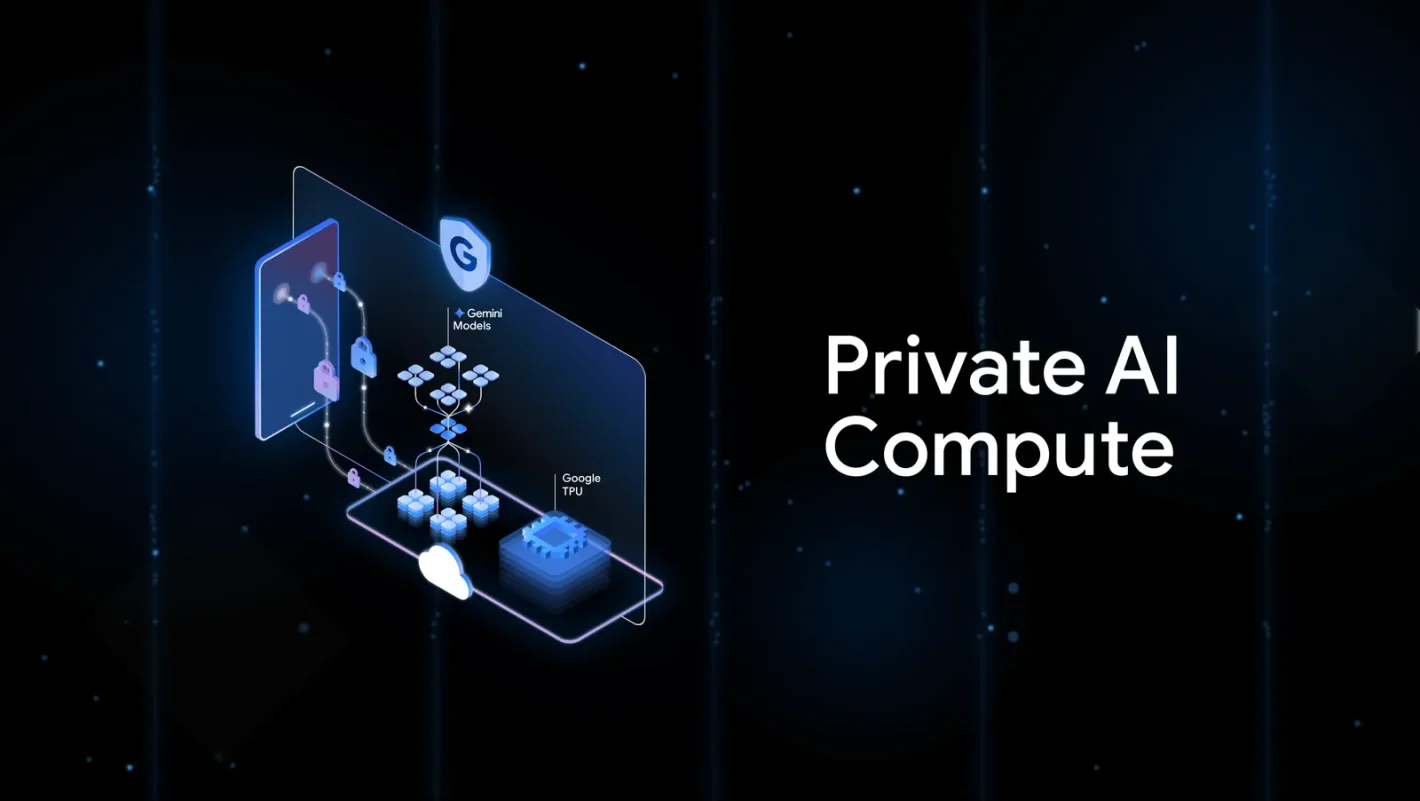Technology
Google Launches Private AI Compute to Enhance Cloud Security

Google has introduced a new cloud-based system called Private AI Compute, aimed at addressing the growing demand for generative AI processing power while ensuring user privacy. This innovative framework allows devices to utilize Google’s advanced Gemini models without compromising sensitive personal data. The initiative highlights Google’s commitment to balancing powerful AI capabilities with stringent data protection measures.
Enhancing AI Processing with Privacy
Private AI Compute is designed to facilitate high-level AI functionalities that far exceed the capabilities of typical consumer devices. By leveraging the cloud, Google claims this system can deliver performance comparable to its extensive server infrastructure while maintaining the “same security and privacy assurances” expected from local processing. This approach ensures that raw, identifiable data does not leave the user’s device, protecting their privacy effectively.
The backbone of this new system is Google’s custom Tensor Processing Units (TPUs), which feature integrated secure elements known as Titanium Intelligence Enclaves (TIEs). These TIEs create a protected environment on Google’s servers, allowing devices to connect through encrypted channels. This design isolates memory from the host, theoretically preventing access to raw user data by Google’s engineers or administrators. Independent analyses have confirmed that this setup adheres to Google’s strict privacy guidelines.
Initial Rollout and Features
The initial rollout of Private AI Compute will enhance AI features on the latest Google Pixel 10 family, including the Pixel 10 Pro, Pixel 10 Pro XL, and Pixel 10 Pro Fold. For example, the system will improve the functionality of Magic Cue, an AI assistant that provides contextually aware suggestions based on user activity. Additionally, the Recorder app will utilize the secure cloud to expand its language capabilities in transcription summarization, showcasing the computational power of the larger Gemini models.
This hybrid approach also addresses a significant challenge encountered by competitors, such as Apple, in their AI deployments. While devices equipped with smaller models like Gemini Nano can operate effectively using local Neural Processing Units (NPUs), they struggle with more complex tasks requiring substantial processing power. Google’s Private AI Compute aims to bridge this gap by allowing devices to manage simpler tasks locally while offloading more demanding processes to the secure cloud infrastructure.
This strategic move positions Google at the forefront of AI technology, emphasizing the importance of user privacy as companies continue to explore the potential of generative AI. As the demand for advanced AI capabilities grows, solutions like Private AI Compute could set new standards for security and performance in cloud computing.
With the launch of this system, Google demonstrates its commitment not only to innovation but also to protecting user data in an era where privacy concerns are increasingly paramount.
-

 Education3 months ago
Education3 months agoBrandon University’s Failed $5 Million Project Sparks Oversight Review
-

 Science4 months ago
Science4 months agoMicrosoft Confirms U.S. Law Overrules Canadian Data Sovereignty
-

 Lifestyle3 months ago
Lifestyle3 months agoWinnipeg Celebrates Culinary Creativity During Le Burger Week 2025
-

 Health4 months ago
Health4 months agoMontreal’s Groupe Marcelle Leads Canadian Cosmetic Industry Growth
-

 Science4 months ago
Science4 months agoTech Innovator Amandipp Singh Transforms Hiring for Disabled
-

 Technology4 months ago
Technology4 months agoDragon Ball: Sparking! Zero Launching on Switch and Switch 2 This November
-

 Education4 months ago
Education4 months agoRed River College Launches New Programs to Address Industry Needs
-

 Technology4 months ago
Technology4 months agoGoogle Pixel 10 Pro Fold Specs Unveiled Ahead of Launch
-

 Business3 months ago
Business3 months agoRocket Lab Reports Strong Q2 2025 Revenue Growth and Future Plans
-

 Technology2 months ago
Technology2 months agoDiscord Faces Serious Security Breach Affecting Millions
-

 Education4 months ago
Education4 months agoAlberta Teachers’ Strike: Potential Impacts on Students and Families
-

 Science4 months ago
Science4 months agoChina’s Wukong Spacesuit Sets New Standard for AI in Space
-

 Education3 months ago
Education3 months agoNew SĆIȺNEW̱ SṮEȽIṮḴEȽ Elementary Opens in Langford for 2025/2026 Year
-

 Technology4 months ago
Technology4 months agoWorld of Warcraft Players Buzz Over 19-Quest Bee Challenge
-

 Business4 months ago
Business4 months agoNew Estimates Reveal ChatGPT-5 Energy Use Could Soar
-

 Business4 months ago
Business4 months agoDawson City Residents Rally Around Buy Canadian Movement
-

 Business4 months ago
Business4 months agoBNA Brewing to Open New Bowling Alley in Downtown Penticton
-

 Technology2 months ago
Technology2 months agoHuawei MatePad 12X Redefines Tablet Experience for Professionals
-

 Technology4 months ago
Technology4 months agoFuture Entertainment Launches DDoD with Gameplay Trailer Showcase
-

 Technology4 months ago
Technology4 months agoGlobal Launch of Ragnarok M: Classic Set for September 3, 2025
-

 Technology4 months ago
Technology4 months agoInnovative 140W GaN Travel Adapter Combines Power and Convenience
-

 Top Stories3 months ago
Top Stories3 months agoBlue Jays Shift José Berríos to Bullpen Ahead of Playoffs
-

 Science4 months ago
Science4 months agoXi Labs Innovates with New AI Operating System Set for 2025 Launch
-

 Technology4 months ago
Technology4 months agoNew IDR01 Smart Ring Offers Advanced Sports Tracking for $169










